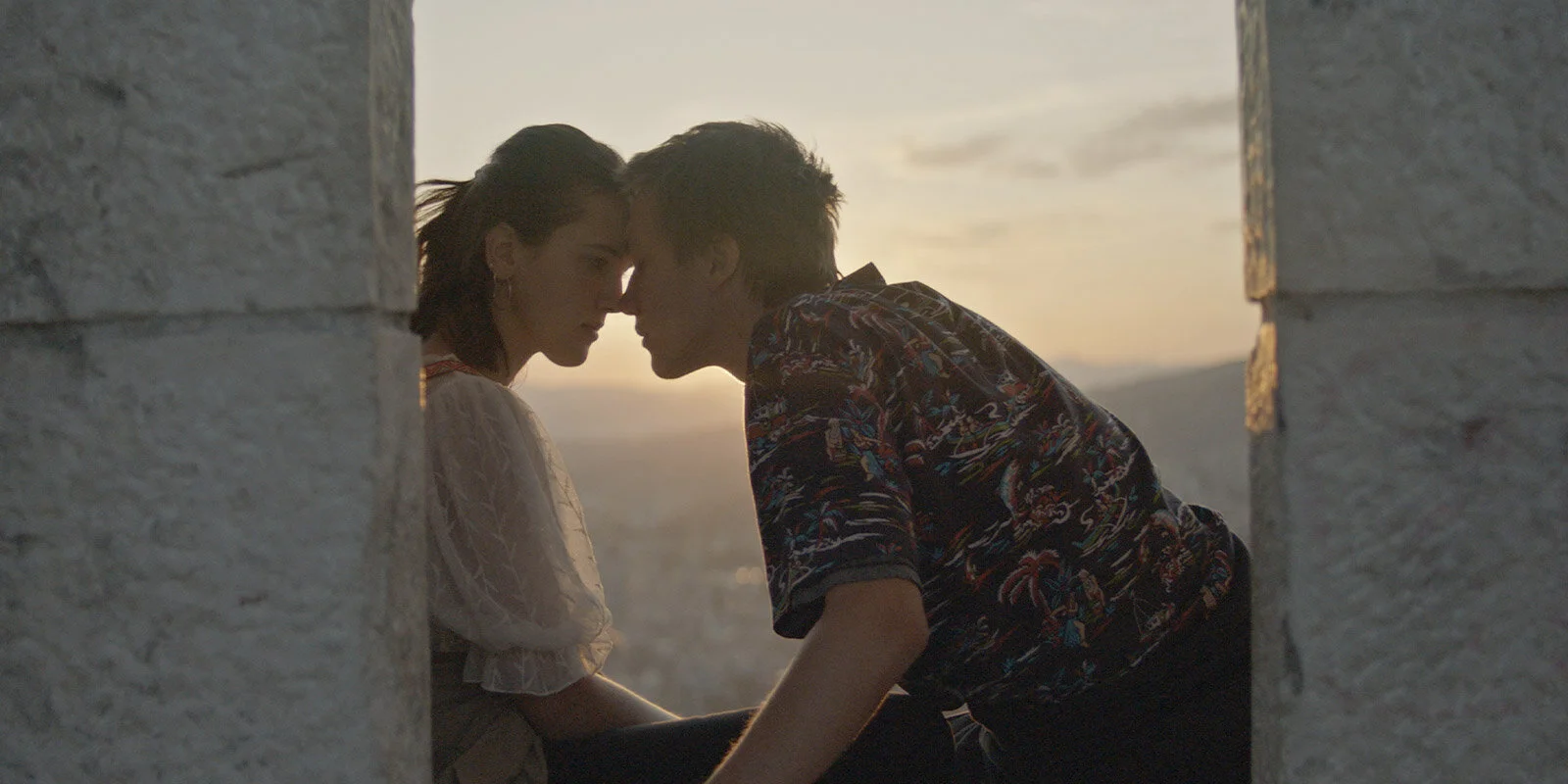Film reviews: The White Fortress, White Cube, and more worth cramming in VIFF's final days
A bittersweet ode to Sarajevo’s youth, and a Dutch artist who sparks radical change in the Congo
The White Fortress
The White Fortress
Canada/Bosnia-Herzegovina.
Screens on October 11 at 3:30 pm at the Hollywood Theatre (followed by a Q&A) and online through October 11 via VIFF Connect
You still have another chance to catch UBC film assistant professor Igor Drljaca’s achingly beautiful ode to post-war Sarajevo and the struggles of its youth on the big screen. The film centres on the nuanced performance of Faruk (real-deal discovery Pavle Cemerikic), an orphaned teenager who lives with his grandmother and gets by as a scrap-metal collector. But he’s increasingly lured into the fast money of a life of crime in his dilapidated Soviet-era housing project, delivering teen prostitutes to the rich who live in the hills above the city. The fate of those girls whose dreams are stolen contrasts that of Mona, a teen whose parents send her to a private international school in a Mercedes and are preparing to ship her away to Canada. Drljaca paints the economic disparity in moving human terms, as Faruk awakens to the ugliness that seethes beneath the surface of his city, even as he starts to fall in love with Mona.
One of Drljaca’s most resonant motifs is fairy tales. Mona and Faruk yearn for a happy ending, but monsters lurk in the shadows. Faruk is more jaded, but he has his own dreams, hope taking the form of the Hawaii poster on his bedroom wall and his favourite tropical shirt. The title itself evokes a fantasy castle, and it may allude to the gated white mansions where both Mona’s family and the predators who prey on poor girls live. But it also points to a historic Sarajevo site where Faruk and Mona can try to escape the despair of their city and imagine a fairy-tale ending—if only for a moment.
White Cube
Netherlands/Belgium
Streams via VIFF Connect through October 11
Part of the Vancouver International Film Festival’s M/A/D series, White Cube is a film that not only exposes the links between the art world and multinational corporations, but uses art to take action to bring about change. When Dutch artist Renzo Martens screened his film project Enjoy Poverty at London’s Tate Modern in 2012, he was surprised to see that Unilever was a major sponsor. That motivated him to take on this project—one that at first may seem crazy but turns out to be utterly inspired. We follow Martens as he travels to the heart of the Democratic Republic of Congo, where workers toil in palm-oil plantations and scrape by in dilapidated company shacks, greeting him with a hearty song as he pulls up in a river boat. Sporting an incongruous dress shirt and tailored pants, along with a jaunty wide-brimmed straw hat, Martens strives to tap the artistic power of the community (and pisses off Unilever in the process). What follows is as unbelievable as it is exhilarating: the Congolese artists’ new collective creates a “white cube” arts centre in the bush, producing clay sculptures that are then 3-D scanned, sent to a New York museum, and reproduced in chocolate. The proceeds are used to buy back land to build sustainable agro-forestry projects. Far from wanting to play the role of white saviour, Martens hands most of the floor to charismatic local artist Matthieu Kassiama, who’s so elated to see his community’s sculptures in the upscale New York museum that he hugs and kisses them. Still, the most compelling stories may be told in the sculptures themselves, which depict figures in torment and struggle. White Cube doesn’t hold all the answers and Martens may strike you as an idealist, but the documentary asks hard and urgent questions about colonial and postcolonial art. Also: what constitutes contemporary art? And who gets to make it?
Godavari
India
Screens via VIFF Connect through October 11
Mumbai-based filmmaker Nikhil Mahajan sets the embittered tone right away in Godavari’s fantastic opening sequence: via an overhead shot, we see a flower-and-candle offering floating along the title’s sacred river, and as it approaches Nishikant (celebrated Indian actor Jitendra Joshi), he picks it up to light his cigarette—then snuffs the offering out with his foot. He’s a fascinating character study, a man stressed out and always angry at the tenants he collects money from, and so embittered toward his family that he stays at a small apartment to avoid them. But he’s about to have a kind of spiritual awakening that starts with someone’s offer to buy his family’s rentals and gets pushed further with an unexpected medical diagnosis. The film travels at a slow, wandering pace, like the Godavari itself, but it offers a unique view of everyday Indian life in the ancient city of Nashik—boosted by solid camerawork, a driving score, and nuanced acting.














